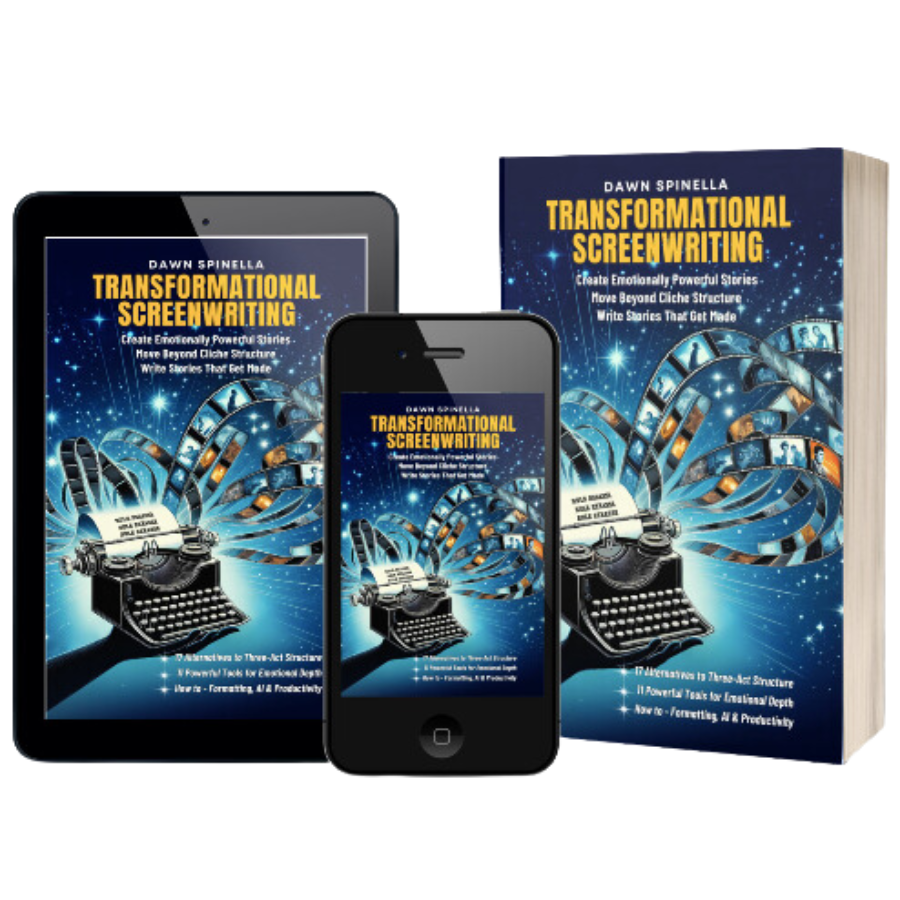Crafting an award-winning indie screenplay is a dream for many filmmakers. In the fiercely competitive world of independent cinema, a compelling screenplay sets your project apart. Whether you’re aiming for recognition at prestigious festivals or crafting a story that resonates deeply with your audience, the journey begins with mastering the art of screenwriting.
In this guide, we’ll share actionable tips from industry professionals to help you write a screenplay that stands out and captures attention. From honing your craft to leveraging the power of storytelling, these insights will give you the tools you need to create a script worthy of acclaim.
1. Start with a Unique Concept
The foundation of an award-winning screenplay is a unique, captivating concept. Indie audiences and judges are drawn to stories that offer fresh perspectives or challenge conventional narratives. Avoid clichés and focus on themes that resonate personally with you.
Pro Tip:
Research indie film festivals to identify trends and gaps. Are there underrepresented voices or themes you’re passionate about? Use these as a starting point for your story.
2. Develop Complex, Relatable Characters
Strong characters are the backbone of any great screenplay. They drive the narrative and keep audiences invested. Indie films often excel at showcasing nuanced, flawed, and relatable characters.
Key Strategies:
- Backstory Matters: Give your characters rich histories that inform their motivations and actions.
- Show Growth: Ensure your characters undergo significant development throughout the story.
- Diversity Counts: Reflect diverse experiences and perspectives to make your story more authentic.
Example:
Think of Frances in Frances Ha. Her flaws and journey to self-discovery make her relatable and unforgettable.
3. Focus on Emotional Engagement
Award-winning scripts evoke strong emotions. Whether it’s joy, sorrow, tension, or hope, your screenplay should make audiences feel deeply connected to the story.
Techniques to Enhance Emotional Impact:
- Conflict: Introduce internal and external conflicts that test your characters.
- High Stakes: Make the consequences of your story’s events significant.
- Subtext: Use subtlety in dialogue and action to evoke layered emotions.
4. Structure Your Story with Precision
While indie films often experiment with structure, a strong framework is essential. The Mini-Movie Method, Hero’s Journey, or three-act structure can provide clarity while allowing creative freedom.

Practical Steps:
- Hero’s JourneyHero’s JourneyOutline your story before writing.
- Divide your screenplay into acts or segments to manage pacing.
- Use turning points to keep the audience engaged.
5. Write Dialogue That Feels Authentic
Natural, believable dialogue is a hallmark of great screenwriting. Avoid overly polished or expository lines that detract from the realism of your story.
Tips for Writing Better Dialogue:
- Eavesdrop: Observe real conversations to understand speech patterns.
- Keep It Short: Less is often more when it comes to dialogue.
- Reflect Character Voice: Ensure each character speaks distinctly based on their personality and background.
6. Embrace Visual Storytelling
Screenwriting is a visual medium. Show, don’t tell. Use action and imagery to convey emotions, themes, and character development.
Examples:
- Instead of saying, “She’s sad,” show her gazing at a cherished photo with tears in her eyes.
- Use symbolic visuals to reinforce themes, like the recurring use of rain to symbolize renewal.
7. Edit and Revise Relentlessly
Even the most talented writers require multiple drafts to perfect their screenplays. Editing is where the magic happens.
Editing Checklist:
- Cut the Fat: Remove unnecessary scenes or dialogue.
- Check Pacing: Ensure the story flows smoothly.
- Seek Feedback: Share your script with trusted peers or mentors for constructive criticism.
8. Research and Leverage Industry Insights
Stay informed about what makes a screenplay successful. Study past indie hits and analyze their storytelling techniques.
Recommended Resources:
- Read screenplays of award-winning indie films.
- Attend workshops or online courses led by industry professionals.
- Subscribe to screenwriting blogs and podcasts.
9. Craft a Powerful First 10 Pages
The opening of your screenplay must grab attention instantly. Festivals and producers often judge a script’s potential based on its first 10 pages.
Make Your Opening Shine:
- Introduce intriguing characters or conflicts.
- Establish the tone and setting vividly.
- Hook the audience with a compelling question or scenario.
10. Submit Strategically
Finally, ensure your screenplay gets the recognition it deserves by submitting to the right festivals and competitions.
Submission Tips:
- Tailor Your Entries: Research festivals that align with your screenplay’s themes or genre.
- Perfect Your Pitch: Craft a succinct and compelling logline and synopsis.
- Prepare Marketing Materials: Include a professional cover letter and biography.
Writing an award-winning indie screenplay is an art that requires dedication, creativity, and strategic thinking. By focusing on unique storytelling, authentic characters, and meticulous editing, you can create a screenplay that resonates with audiences and industry professionals alike.
Remember, every great writer started with a blank page. Embrace the journey, keep learning, and trust in your voice as a storyteller.
Transform Your Screenwriting with Transformational Screenwriting
Are you ready to take your storytelling to the next level and craft screenplays that leave a lasting impact? 🎬 Transformational Screenwriting is your ultimate guide to mastering the art of powerful storytelling, helping you create compelling narratives and unforgettable character arcs that stand out in the competitive indie film industry.

Whether you’re an experienced screenwriter or just starting, Transformational Screenwriting provides the insights and guidance you need to elevate your scripts from good to award-worthy.
✨ Don’t let your screenplay fall short of its potential. Take the first step toward creating stories that matter.
🎥 Unlock the power of Transformational Screenwriting today and bring your creative vision to life!


2 thoughts on “How to Write an Award-Winning Indie Screenplay: Tips from the Pros”
Pingback: From Concept to Completion: How to Fund Your Indie Film Without Breaking the Bank - Independent Film Arts Academy
Pingback: Building a Strong Indie Film Script: From Concept to Outline